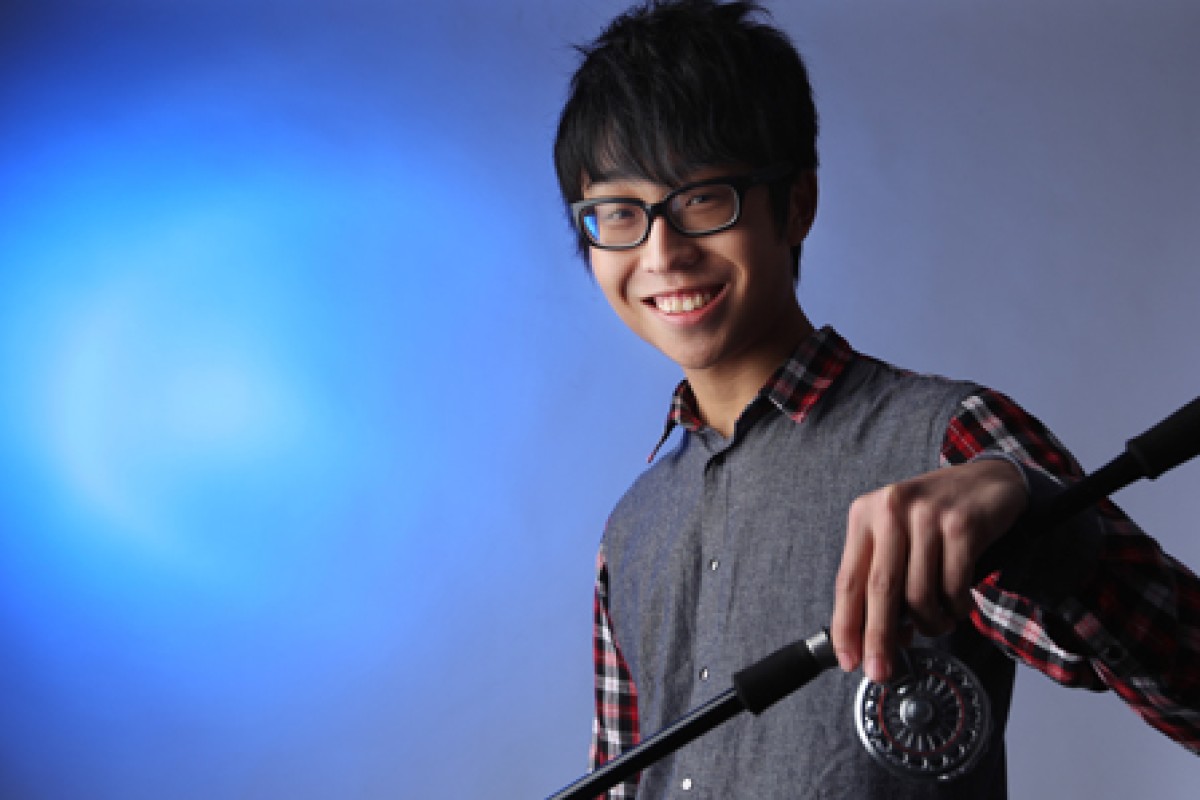 At 18, angler Ronald Chow is already writing his own fishing column in a magazine.
At 18, angler Ronald Chow is already writing his own fishing column in a magazine.Fishing is not all about sitting, either. Maeuchi, a Japanese form of fishing, is Ronald's favourite. "Maeuchi involves a lot of walking. I constantly change my position when I am fishing," Ronald says.
"It is probably the lightest way of fishing. The shrimp bait floats as there are no weights on the bait. This makes them look alive, attracting fish easily."
Another misconception is that you have to travel to some isolated spot to cast your line. Ronald says a busy public pier is actually ideal. "Piers provide the best shelter for fish - they get protection and food. Piers are ideal places for fishing."
The Form Five student from StLouis School, in Sai Ying Pun, began fishing when he was aged seven. "My dad took me to the seaside at Sai Wan to fish. I liked it, but I stopped fishing in Primary Five to focus on my exams," Ronald says.
Now he can spend more time on the sport; when he is not by the water's edge, he can be found checking out what's new on the internet. "I surf the net and check out the fishing forums. I study different ways of fishing and discuss it with online friends," Ronald says. He also buys second-hand fishing rods and other equipment at online auctions.
Along the way, he has developed his own philosophy for fishing. "I always release the fish that I catch after recording their sizes and taking a picture," he says.
"I love fishing, but I'm not the kind of fisherman that relies on selling my catch for a living. And I don't fish for food either; I buy fish at the market if I want to eat it."
For Ronald, it's all about the fun. "To make the hobby sustainable, we can't overuse the resource. Some people argue that we should not eat the fish we catch because our seas are polluted. Fish may contain heavy metals and other pollutants."
Another great thing about the sport is that it is relatively cheap, he says. "The initial cost can be several hundred or several thousand dollars depending on your choice of rod, which is the equivalent of the cost of a racket for ball games."
After that, you need only pay for the bus fare and bait, or man-made "lures" designed to attract fish. "The shrimp or small fish are only about HK$20 or HK$30," he says.
There are very few fishing competitions in Hong Kong. However, in 2010, Ronald joined one Maeuchi contest in Ping Chau, organised by a major fishing forum. He competed against adults with decades of experience and won the "catch of the day" prize.
"I caught a sea bream that was more than 40cm long, which was the biggest fish of the day. In the past, people used weight to determine the biggest fish; now most people use length," he says.
With years of fishing behind him already, he stands out from most of the other anglers his age. Ronald was even invited to write for a new monthly fishing magazine in Hong Kong. He says: "I write a feature in Chinese every month. In the latest issue, I share my strategy for fishing at Central Public Piers."
Ronald believes that fishing is a lifelong learning process. He suggests beginners ask for advice on online forums, or from staff at fishing tackle stores - most of them are friendly and willing to share their knowledge.
Of utmost importance, he says is the issue of safety. "Be responsible. Make sure that you check the weather report before going fishing. Let family members know where you are going. And be careful of poisonous fish commonly found in Hong Kong."
